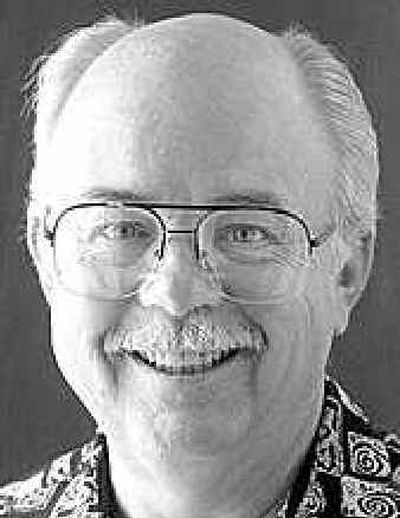Prophetic religion serves us better than partisan type

I will be so relieved when the presidential election is over in 2 1/2 weeks. Then we can revert back to our collective illusion that religion and politics have nothing to do with each other.
But until then, let’s prepare to make our election choices based on better information than this political season’s campaign ads dish out.
One way I prepare is to remind myself that the current mix of partisan politics and partisan religion is neither politics at its best or religion at its best.
Partisan politics too often means a political process that is manipulative and divisive. Partisan religion is also manipulative and divisive, and it has no healthy place in a political campaign.
A most offensive example of this dreadful mix of politics and religion is a mailer sent to voters in Arkansas and West Virginia a few weeks ago by the Republican National Committee. It had two images: the Bible with “banned” typed across its cover, and one man kneeling and holding the hand of another man who is sitting.
The message speaks of “traditional values” being assaulted by “liberal politicians and their hand-picked activist judges.” The other party is basically accused of wanting to “ban” the Bible and establish gay marriage. Very oversimplified, but it can sell.
In addition to this mailer, the same national political committee has tried in recent months to get churches to turn over their congregational membership lists to local Republican committees. I can only assume it wanted to expand its party volunteer pool and/or get more voters registered.
But a church ceases to be “the church” when it becomes a partisan political committee.
I’m told that even many of the Republican faithful believe their party is going too far in mixing religion into the political process. I should hope so!
These are examples of political manipulation of religion at its very worst.
(To be fair, I assume that we might find examples of Democratic Party manipulation of religion for political purposes. I simply haven’t seen any publicity that the party is doing anything in particular to stir the church-and-politics mix in such an unhealthy way.)
One thing that truly disturbs me about the mailers and the recruitment of churches for political purposes is the blatant assumption by top Republican strategists that they somehow have a corner on religious truth in America. They most certainly do not!
Unfortunately, too many everyday people actually believe the “sound-bite spirituality” dished out that says “anyone who believes differently than we believe is wrong (and may even be evil).”
That is a dangerous assumption to make. But I believe it is the subtext of too much of the partisan religion we’ve endured this fall.
Do you know what “demagoguery” is? It is the action of a person or a group that stirs up other people through emotional appeals, prejudice, etc., in order to manipulate those people to the selfish ends of the manipulator.
One of the dangers of demagoguery is that it can appear so innocent, so sincerely beneficial on the surface. But “demagoguery” was one of the first words I thought of when I read of the political mailers that suggest people with a “liberal agenda” want to “ban the Bible.”
When we allow ourselves to believe there is only one way to read the Bible – and a political party dictates that way – then I believe we’re naively open to religious demagoguery. I’m certainly not that naïve. Are you?
The Judeo-Christian tradition, at its collective best, is strongest when it plays a prophetic, check-and-balance role in our lives.
In the political arena, prophetic religious faith checks the power of governmental leaders through the simple power of moral persuasion based on spiritual truths both simple and profound. Old Testament prophets relentlessly reminded kings and priests that the true test of their faithfulness was how they treated the poor and vulnerable under their rule.
Jesus certainly played that prophetic role to the ultimate.
The healthiest role faith communities can play in the unfolding political dramas this fall is not one of partisan religion but of prophetic religion. We drastically compromise basic religious freedom for everyone when we let political parties tell us what to believe or how to act out our beliefs.
We become prophetic when we can say, “Wait just a minute. The God I know is not partisan – neither Republican nor Democrat, neither Christian, Jew nor Muslim. My God knows we will make pitifully shallow choices if we settle for only the limited truth found in 30-second political TV ads.
“My God requires us to look for the best possible solutions for all people in this country, especially for those who don’t have money or political power. We have yet to do that well.”
Our religious faith is meant to bring us fulfilled lives. Prophetic religion, not partisan religion, offers us the best way to that fulfilled life.